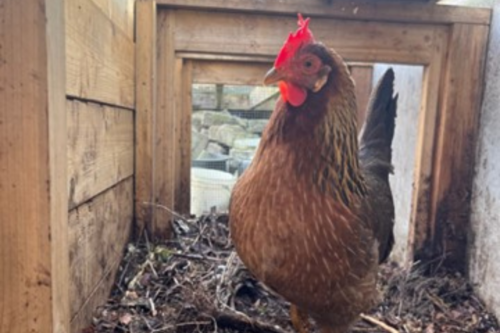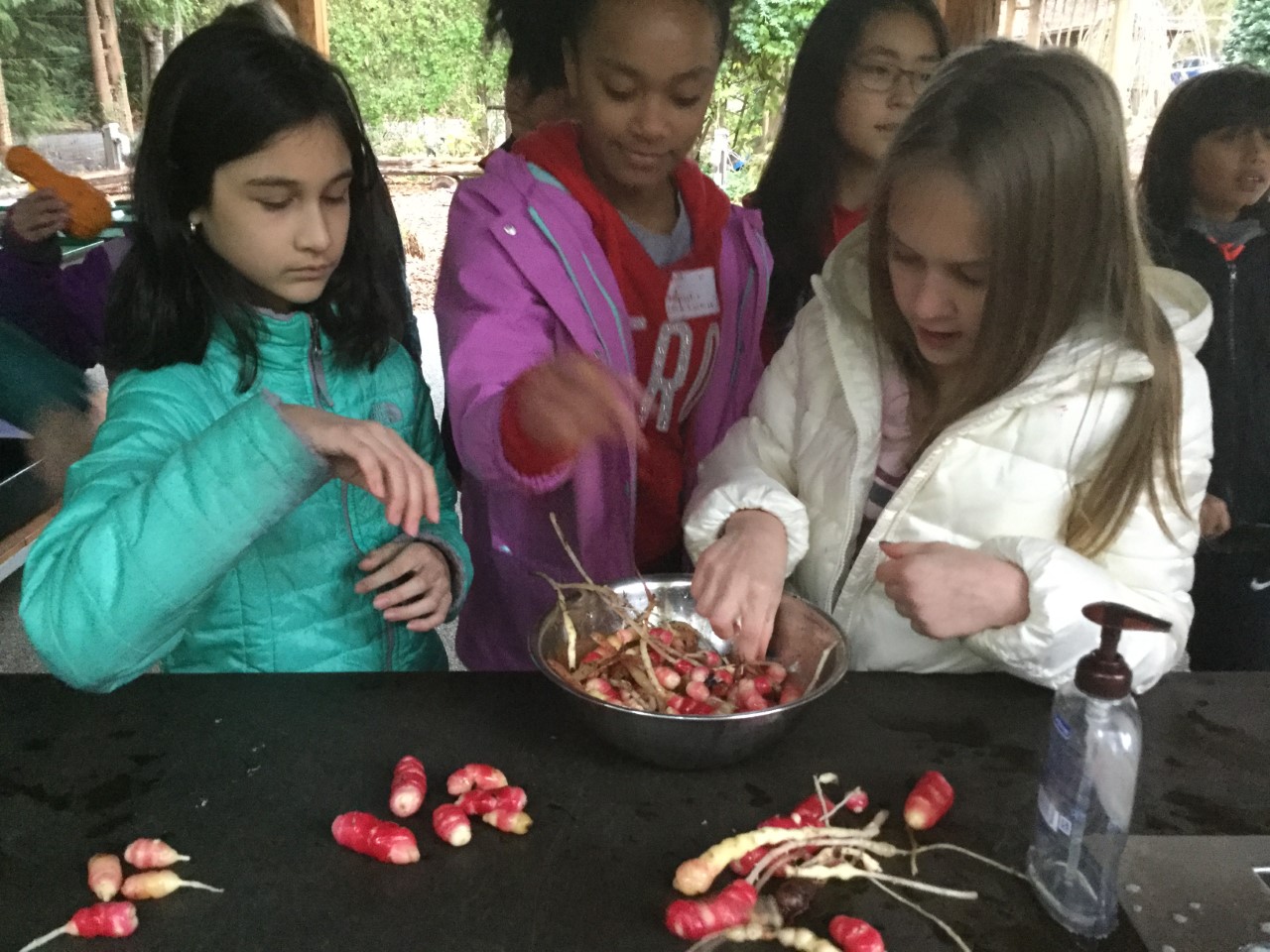February brings a new chapter to the IslandWood garden!
“I feel like my role is to create a space for people to discover what is theirs to discover.”
This summer we welcomed Megan Gordinier as our new Garden Manager. Learn more about her, and her work in IslandWood’s Garden Classroom, below!
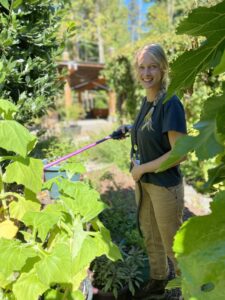
Garden Manager, Megan Gordinier watering plants in the Garden Classroom on IslandWood’s Bainbridge Island campus.
Megan, can you tell us a little bit about yourself?
Yes! My love of food and farming began while studying sociology and global development at Seattle Pacific University. After studying abroad and living in Central and South America, where I worked in several agricultural capacities, I came back home to Kitsap County, connected with a strong agricultural community and have been farming here ever since. I love agriculture, and for me personally, believe it’s one of the ways we can save the planet. I came to IslandWood after spending five years in multiple farming roles at Heyday Farm on Bainbridge Island. A friend and IslandWood donor mentioned the open role at IslandWood and I thought it was the perfect marriage of the things I care about. I believe it’s every person’s birthright to have their own relationship with nature.
What does the Garden Manager role entail?
The main responsibilities of the role are to ensure that IslandWood’s garden is a model for best practices in sustainable gardening and garden-related learning and to guide the vision of our school and community-based garden programs. I was drawn to the role because I thought to myself, wow, 4,000 children experience this garden in a typical year – can I take what I know and bring it to this space and all the different children who experience the garden each year? I feel like my role is to create a space for people to discover what is theirs to discover.
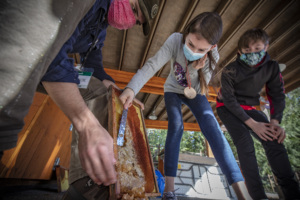
Students participating in a lesson, harvesting honey, in IslandWood’s Garden Classroom on its Bainbridge Island campus.
Why do you think the garden is such an important part of the IslandWood experience?
When I started at IslandWood two months ago, I first asked myself, ‘Who is this garden for? What is the purpose of the space?’ It’s obvious the space was very intentionally and thoughtfully designed. I see the deliverable, if you will, of the space as being inspiration. So even if a child comes to the garden and says, ‘I hate all vegetables and I’m not going to eat anything in here,’ even if it’s just the space itself, or the way that things are growing, or the colors, or the shapes – if their experience in the garden produces any kind of curiosity or awe or inspiration, that’s what I hope for. And, I hope that when children leave here, they understand something about their everyday life at home better. So whether it’s coming here and realizing that even though maybe they live in a city, they do still live in nature and they are still part of an ecosystem. Or, if they’re walking by Pike Place and see all the produce there, they think, that produce was grown somewhere. Where was it grown? I hope their experience here inspires more curiosity in their daily life. I think that noticing things is a precursor to gratitude, which is a precursor for caring about things in your life, which is a precursor to stewardship. You have to care to steward.
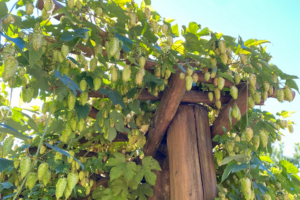
Hops grown over the entry way to the Garden Classroom.
What are you working on right now?
Right now, one of the things I’m spending time on is helping prepare and support our graduate students in their comfort level of teaching in this space from a place of their own personal inspirations. I’m helping orient them to our garden and serving as a resource for supporting them in their teaching when children are back here on campus!
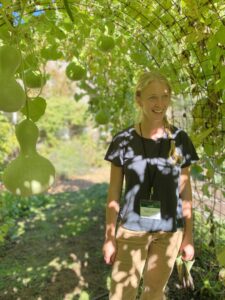
Megan under an arc of gourds in the Garden Classroom.
What garden projects are you excited about for this school year?
I’m excited to do more vertical gardening, because we have a relatively small space and I think we’d be well rewarded by transitioning some things – say strawberries – to growing vertically with a tower. And, taking the limits off how we think about things, like, ‘strawberries grow on the ground’ when actually strawberries can grow vertically too! I would like to bring creativity into the garden through different installments that almost like art, will be interesting and would also free up actual soil space for other things to grow. I also want to create different zones, if you will, in the garden. An example of a porch garden, or of a garden made from all elements that you can upcycle from your own kitchen and turn into a productive space, no matter what kind of space you have. And also, even more observational opportunities – things like growing potatoes in those tall sacks that have observation windows so you can see what’s actually happening – what you can’t normally see because it happens under the ground. I’d like to bring as many observational opportunities as possible into the garden. And I’m also excited to visit other educational gardens and gather inspiration and ideas that might be applied to our garden classroom here at IslandWood.

